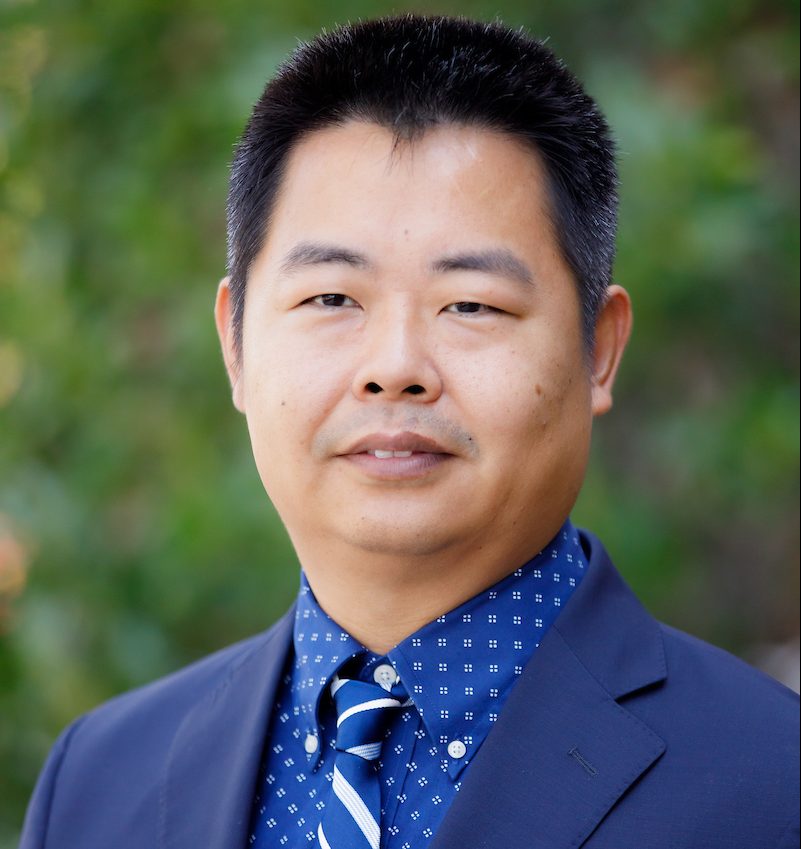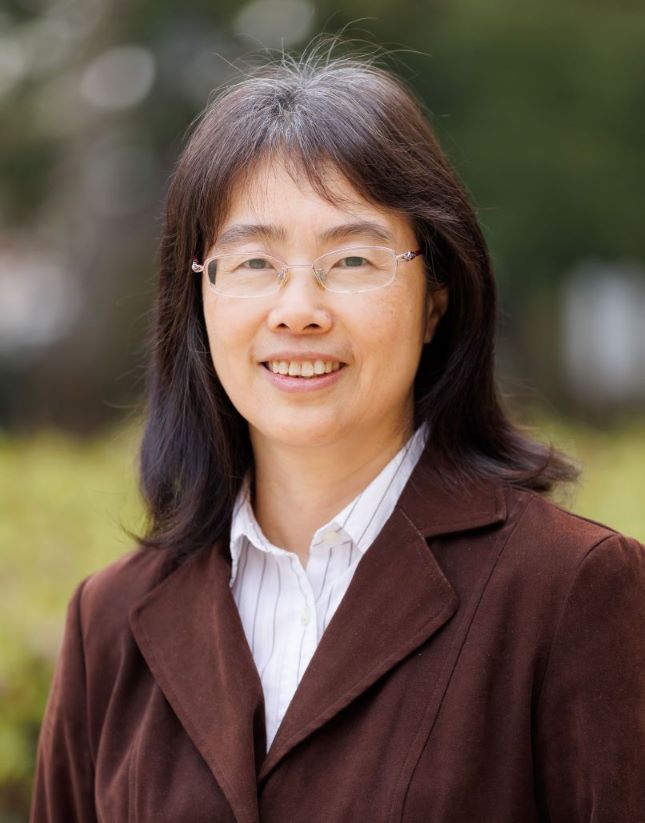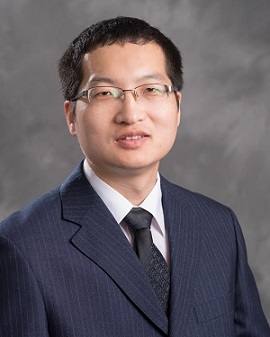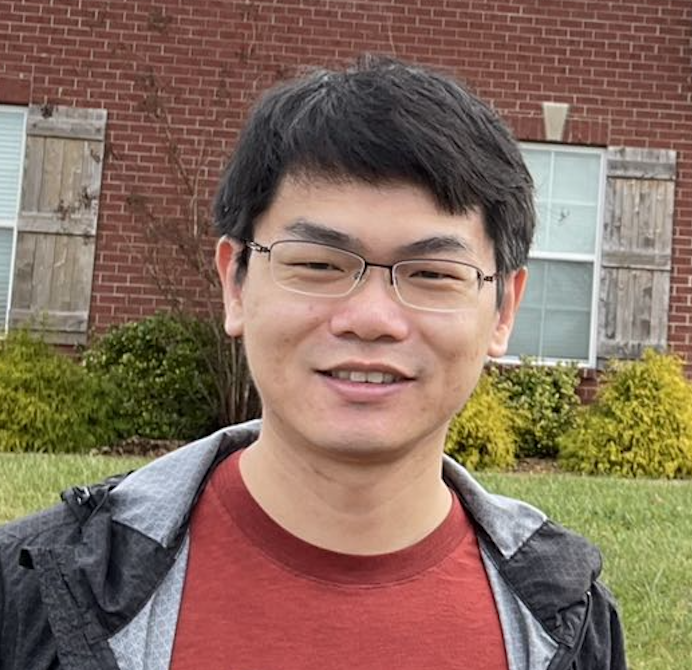Meet Our Team
Meet the members of our team working on the Rural Resilience Open Knowledge Graph project, including the principal investigator, co-principal investigators and student contributors.
Project Principal Investigators (PIs) and Co-PIs
PI: Dr. Jiaqi Gong

Bio
Jiaqi Gong is an Associate Professor of Computer Science at The University of Alabama and the inaugural director of the Alabama Center for the Advancement of Artificial Intelligence. He is a prolific researcher with a strong focus on artificial intelligence, smart health, and wearable technologies. Jiaqi has authored numerous high-impact publications in leading journals and conferences, advancing knowledge in areas such as connected health, biomedical informatics, and human-robot collaboration. His research has received numerous awards for his innovative research in artificial intelligence, smart health, and wearable technologies, including the Best Student Paper Award at the IEEE/ACM Connected Health Conference (CHASE) and the Best Paper Award at the International Conference on Body Area Networks. He also won the Best Demonstration Award at the IEEE Wireless Health Conference and was a finalist for best paper at several other major conferences. These honors highlight his leadership in advancing AI and smart and connected health.
Website
Co-PI: Dr. Hee Yun Lee
Bio
I'm a Distinguished University Research Professor and tenured full professor at The University of Alabama School of Social Work, where I hold the Endowed Academic Chair in Social Work (Health) and co-direct the Alabama Center for the Advancement of Artificial Intelligence. My research aims to reduce health disparities in underserved communities through technology-driven interventions, supported by federal funding from agencies like NIH and NSF. I emphasize Community-Based Participatory Research, with key projects including AI-powered digital therapy for dementia caregivers. My lab, the HEAL Lab, nurtures scholars in advancing social work and health disparity research, and I've received several prestigious awards, including the University Distinguished Research Professor title in 2024.
Website
Co-PI: Dr. Matthew Hudnall

Bio
Matthew Hudnall has worked for the past 16 years as the deputy director for the center of advanced public safety at the University of Alabama. He is now an assistant director in the Culverhouse Institute of Business Analytics.
Dr. Hudnall's research focuses on large-scale government decision support systems, cyber security of state and federal government systems and integration of cybersecurity from project inception through development and into production, as well as the development of new and innovative data analytics approaches to legacy data collection systems.
Website
Co-PI: Dr. James Geyer

Bio
Dr. James Geyer, interim director and medical director of the Institute for Rural Health Research, is a practicing physician, board-certified in Neurology, Sleep Medicine, and Neuroimaging. He has authored over 100 journal articles and book chapters and has edited several textbooks including Clinical Sleep Disorders. He is also a biomedical and electrical engineer. His research includes clinical research, medical devices, applied microbiomics, and AI-focused healthcare solutions. He has served as co-PI on numerous AI grants, with the most recent being the NSF Proto-OKN artificial intelligence program. He has participated in over 50 clinical trials, served as PI on many, and has participated in trial development for several different pharmaceutical companies. He presently directs the Division of Clinical Investigation and the Clinical Experimental Pharmaceutical Initiative.
Website
Co-PI: Dr. Xiaoyan Hong

Bio
I am an Associate Professor in the Department of Computer Science at the University of Alabama. I received my Ph.D. degree in Computer Science from the University of California at Los Angeles in 2003. Earlier, I obtained my BS and MS degrees from the Department of Computer Science and Technology at Zhejiang University, P.R. China. My research interests include mobile and wireless networks (MANET, VANET, DTN), edge / fog computing, federated learning, and AI applications. Details can also be found at WiMaN Lab.
Website
Senior Personnel: Dr. Dapeng Li

Bio
Dr. Dapeng Li is an Assistant Professor in the Department of Geography and the Environment at the University of Alabama. He has a long-running research interest in using geospatial technologies to save lives and property in disasters. My current research primarily focuses on: 1) data-driven evacuation modeling and planning; 2) Web GIS applications in wildfire evacuation, public health, and agriculture; and 3) wildfire risk modeling and mapping. As a certified GIS Professional (GISP), I am dedicated to educating the next generation of GIS professionals at the University of Alabama and helping them succeed in their careers.
Website
Student Members
Student: Xiaoming Guo

Bio
Xiaoming Guo is a Ph.D. student in the Department of Computer Science at the University of Alabama. His research focuses on technologies in Large Language Models, Knowledge Graphs, and smart transportation systems. With a background in software engineering from Huazhong University of Science and Technology, he has extensive experience in both academic research and industry roles. His current work includes building the infrastructure for the OKN project, where he designs and develops robust database and front-end systems. Xiaoming's expertise spans relational and graph databases, Python, and Java development.
Student: Xishi(Ethan) Zhu

Bio
Xishi (Ethan) Zhu is a PhD student in the Department of Computer Science at the University of Alabama. His research centers on applied machine learning across fields such as behavioral science, health informatics, and smart, connected health. Currently, he is focusing on leveraging large language models (LLMs) to transform unstructured data in health and justice domains into structured knowledge graphs and expert-informed ontologies. This work aims to assist social workers and clinicians in making more informed decisions efficiently and effectively, particularly in studying health-related behaviors such as substance abuse.
Website
Student: Ryan Henry

Bio
Currently a PhD student at the University of Alabama studying large language models and knowledge graphs. Has a Master's Degree in Electrical Engineering from the University of Florida. Worked as a Systems Engineer for 5 years at Lockheed Martin.
Website
Student: Emily Jackson

Bio
Emily is a first-year PhD student in the Department of Computer Science at the University of Alabama. She previously earned her Bachelor's Degree in Computer Science from Kennesaw State University and received the "Best Paper" award at ACMSE ‘24. Emily's current work is focused on integrating knowledge graphs with large language models(LLMs) in pursuit of improved knowledge retrieval and output validation, among other exploratory improvements.
Website
Student: Shenglin Li

Bio
Shenglin (Shane) Li received the PhD degree in Mechanical Engineering at The University of Alabama. His research focuses on advanced applications of AI, including multi-camera vehicle tracking, sensor fusion, and computer vision on NVIDIA hardware. He has extensive experience with machine learning algorithms such as YOLO and DEEPSORT, and his work has resulted in significant improvements in vehicle localization and tracking. Currently, he is working as a post-doctoral researcher at the SAIL Lab, where he is modeling data storytelling as a combinatorial search problem to enhance scientific creativity.
Website
Student: Andres Ramirez Molina

Bio
Andrés Ramírez Molina is a PhD student in the Department of Computer Science at The University of Alabama. He specializes in integrating Data Science, Machine Learning, and Artificial Intelligence with environmental science. Andrés holds a Bachelor's in Electrical Engineering and a Master's in Political Science, bringing over 18 years of diverse experience across various continents and industries. His unique skillset has led him to roles where technology intersects with public administration and innovation to address complex social issues. Currently, Andrés' research focuses on exploring synergies between large language models (LLMs) and hydrological science to improve the identification of research-to-operation gaps and enhance decision-making in water resource management. He also utilizes deep neural networks to create synthetic streamflow data for unmonitored river segments, aiming to enhance flood risk management and water resource allocation in regions lacking physical gauge networks. Additionally, he employs advanced machine learning techniques to reconstruct past climatological patterns using tree-ring data. The principal objective of his research is to enhance our understanding of historical climate dynamics and their influence on regional hydrology, thereby facilitating improved forecasting and strategic resource management to effectively address climatic variations and their consequences on water availability and ecosystem well-being.
Website
Postdoctoral Members
Post-doc: Chen Wang

Bio
Chen Wang earned her B.S. degree in Computer Science from the University of Jinan in 2017 and completed her Ph.D. in Computer Science at The University of Alabama in 2023. Currently a Postdoctoral Researcher at UA, her work focuses on interdisciplinary research, particularly enhancing the sensitivity of AI technologies to social and ethical issues in areas such as smart healthcare, education, and engineering.

